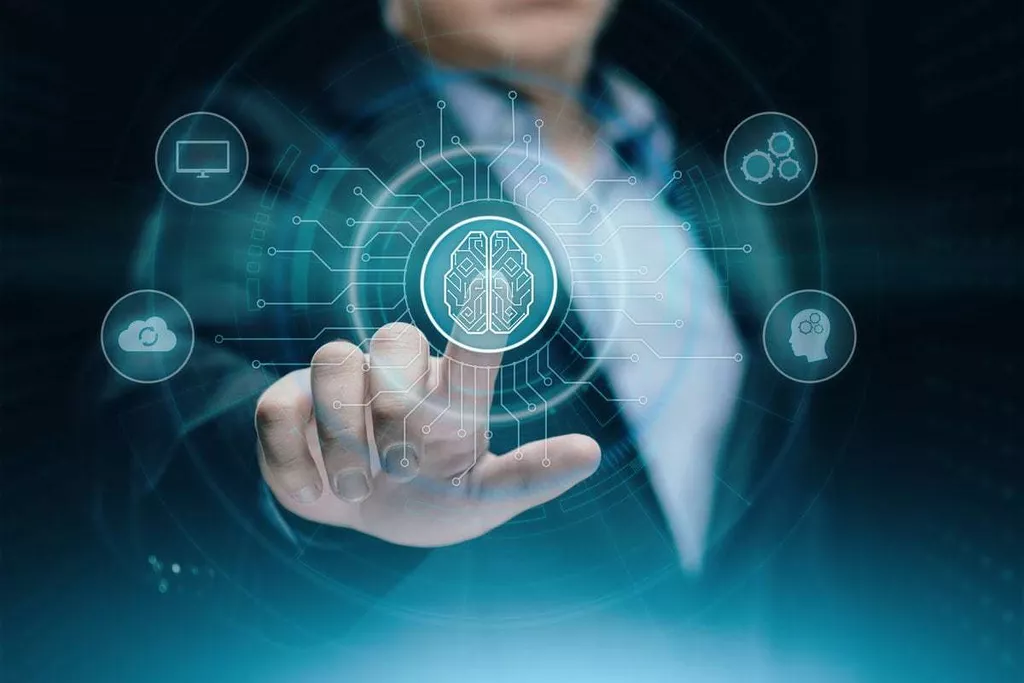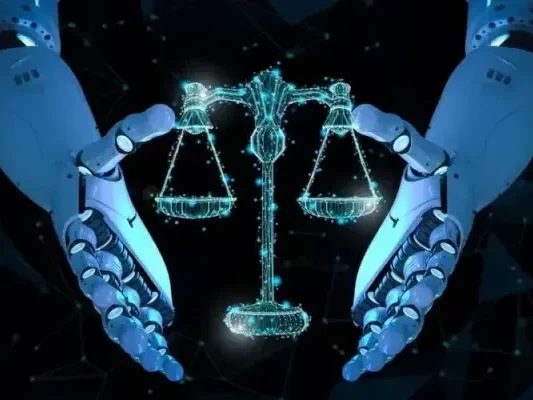Although the legal industry is quite conservative in terms of introducing new technologies, artificial intelligence has a significant impact on organizations operating in the legal field. The shift has raised concerns among lawyers who fear being out of work because of the machines. However, it is becoming clear that as AI develops, jurists will try to find new ways to implement it in their practice.
Intelligence technologies are already being used in many law firms to automate various tasks, e.g., verification and contact discovery. In the future, when artificial intelligence becomes even more advanced, it will be able to perform more complex tasks. It means lawyers must keep up with the latest developments and learn how to use AI to their advantage.
Use cases of AI in law companies
Artificial intelligence is taking the business world by storm with its ability to collect, analyze and respond to data quickly. Artificial intelligence technologies in legal organizations involve the application of computers, algorithms, and large amounts of information to assist, cooperate, or even mimic the behavior and decisions of lawyers so that legal organizations can operate successfully in a business environment. Consider the most popular options for using digitalization to facilitate lawyers’ work.
Document overview
Reviewing litigation papers includes looking for relevant documents, such as contracts that contain keywords or letters. Setting search parameters does not require artificial intelligence; advanced technologies increase the analysis’s speed, accuracy, and efficiency.
If a lawyer who uses AI-ruled platforms marks specific contracts as relevant, the artificial intelligence understands what type of documents it needs to look for; this is called predictive coding. Such technology has many advantages when compared with viewing documents manually:
- It uses only a few samples to find similar documents.
- Reduces the volume of documents that are not relevant to the case.
- Produces results backed up by statistics.
- Guarantees greater accuracy than human vision.
- The procedure is as fast as possible.
Frequent document reviews are a good learning base for algorithms. The more documents pass through the AI of documents, the more accurately, and faster the algorithms notice patterns and essential points. Predictive analysis helps lawyers build the proper defense and adequately present the case in court.
Language simplification
Lawyers study at university to quickly understand the language of laws. Clients needing consultation need help understanding professional jargon and legal terms often. Artificial intelligence applications help them understand the basics of contracts even before meeting with a lawyer.
Many programs allow people to download legal documents and receive a simplified version in a few seconds. After a detailed analysis, the AI solution recommends how a lawyer can help the user.
The client uploads the file, and artificial intelligence generates the case file. Then the lawyer may study it. It saves time and money for users and lawyers.
Contract analytics
Signing and overseeing contracts can be challenging, especially if we speak about giant companies with many pending agreements and counterparties in different divisions.
Various solutions with elements of NLP allow one to obtain and evaluate information on the central contracts of the company. Such technologies allow the sales department to always be aware of when agreements are ready and for renewal and the purchasing team to track the details of the contract and, if necessary, make changes.

Administration automation
Sometimes it can be challenging to bill for productive hours correctly. AI-powered platforms make it easier to bill and register through various intelligent measurements.
Artificial intelligence takes over the tasks associated with both billing and automatically sending them to customers. In addition, it may control late payments with the help of process automation algorithms.
Legal Assistant
Every lawyer dreams of a helper who will keep records of current procedures and extract information from documents. These responsibilities can be delegated to intelligence assistants who will collect data using natural language, like Siri, but with knowledge of the laws.
Chatbots in customer service
The Legal Trends Report states that 79% of new clients expect a response within 24 hours of contact. With automation capabilities, the chatbot can respond within seconds, so the lawyer no longer has to review the email and manually respond constantly. Here are a few more benefits of chatbots:
- Save time and money: With chatbots, lawyers no longer waste time answering simple client questions. By automating these simple but time-consuming tasks, jurists may focus on tasks that generate more revenue.
- Increasing profits and efficiency: сhatbots can answer not only questions but also automate client appointments and legal consultation bookings.
- The ability to stand out from the competition: clients cite a law firm’s responsiveness as a critical factor when choosing a firm to work with. Virtual assistants help companies stand out from the competition by providing quick responses.
Chatbots form a customer-centric experience, not just the first contact with potential customers. Virtual assistants store information about loyal customers. Programmed AI-based systems provide quick case updates, answer frequently asked questions, and book future consultations.
Pros and cons of using AI in law
Adding artificial intelligence to legal organizations’ work enhances lawyers’ ability to get the job done. Digitalization generally helps complete routine tasks faster, freeing up time for relationship-building and customer-focused activities. The adoption of AI in law firms provides many benefits:
- Quick review and contract analytics: AI makes working with documents as easy as possible. The system determines the necessary papers, analyzes them, and determines the requested conditions and applications, after which they are ready for consideration.
- Ease of legal research: law firms now have unprecedented access to attorney, judge, court, and damages data, allowing them to create an even more efficient plan. AI-based tools help to understand previously ambiguous points in a case, such as how often your judge grants summary judgment or which court is correct in different situations.
- Eliminate time-consuming tasks: artificial intelligence and automation take up to 25% of a lawyer’s daily tasks. Most of these activities are routine, paper-based duties that take the specialist’s attention away from the strategic aspects of the case.
- High-quality work: advanced document processing software can function without errors. It improves the organization of papers and maintains order, including all internal cross-references, throughout the entire period of validity of the document. Contract comparison tools look for missing clauses and incorrect terminology through document comparison.
The potential benefits of AI in law are notable. Intelligence technologies increase lawyers’ productivity and help avoid costly mistakes. In some situations, using artificial intelligence accelerates the speed of research and decision-making. However, artificial intelligence is not ready to supplant human judgment in legal activities. Before using such technology in specific contexts, you must overcome the following disadvantages:
- Machines cannot be completely reliable: even minor damage to a computer or software may lead to a mess. While AI can be infallible in theory, there is no guarantee a device or program is error-free.
- Exposure to cyberattacks: another concern is privacy and cybersecurity, which is understandable. According to a recent study by an insurance company, 22% of law firms were affected by cyber-attacks. The victims were both well-known personalities in the legal industry and small companies.
- Only large organizations can afford advanced technologies: small firms need more financial resources to implement intelligent systems.
There are a lot of things that artificial intelligence can’t handle at this stage. He cannot hold meetings with clients or appear in court, which requires the presence of a person. However, intelligence technologies provide lawyers with important information that makes any process smoother and allows all actions to be completed faster.
The most popular AI tools in the legal field
AI-based software is of great help in legal work, showing considerable discretion in processing information and predicting results. AI allows automating workflow, which saves a lot of time. Such intervention reduces the human costs associated with legal procedures.
Recently, the legal area has become more open to new technologies. Below we have compiled a list of the most popular AI-ruled platforms for lawyers:
- Kira is a technology that allows the extraction of documents from case and record files. Such a tool identifies the clauses of contracts, which helps reconcile documents. Kira can create clear contract summaries, which is especially important for law firms.
- Luminance is a document viewer that maintains legal client databases. It speeds up the review and highlights the main points and anomalies in the contracts. The software identifies words in documents that may cause conflicts in the future, sends notifications to the user, and tries to find alternatives.
- ROSS allows the lawyer to perform question-based exploration and offers document parsers. The program looks for canceled and critical interpretations in documents during peer review. The platform provides a summary of the case, alerts the lawyer to relevant topics, and feeds the jurist with data derived from related cases.
- Everlaw is a cloud-based eDiscovery platform that provides end-to-end support. It helps in creating narratives, researching evidence, and creating arguments. The program is capable of translating documents from and into 109 languages. The Everlaw Story Builder option offers powerful storytelling and trial preparation tools.
Initially, the use of AI was quite simple – the programs allowed the lawyer to find the right words in megabytes of data. Later, experts used artificial intelligence to eliminate duplicate documents and connect email chains. Today’s advanced AI can search records for context, concepts, and tone using predictive coding that goes far beyond conventional keyword searching. Predictive coding allows attorneys to check a huge amount of data in a few minutes.

Ethical aspects of using AI in law organizations
AI in the legal field is an essential element of a complex, rapidly developing industry in which new laws and discoveries appear every day. Humanity is not yet aware of advanced technologies’ full impact and potential. For a profession that needs to be strictly enforced, this means implementing AI with caution:
- ABA Model Rules: The main rule of the American Bar Association is that an attorney must competently represent a client. Are we well aware of the benefits and risks of artificial intelligence and machine learning (ML) for their use in a lawyer’s daily practice? Regarding research and database queries, the answer to this question is yes. However, as the use of AI and ML in predictive analytics grows, this issue needs to be explored in more detail.
- Implicit bias: No matter how hard people try to be objective, we are biased by nature. We often describe our justice systems as biased. Since AI tools work based on information obtained from such a system, there is a risk of bias in the predicted results.
- AI and legal liability: if an AI-ruled system produces incorrect or biased results, who is responsible for this: a lawyer or an artificial intelligence system developer? Let’s assume that the prosecution uses AI solutions, but the defense does not. If an intelligent system helps the prosecutor win the case, is the lawyer responsible for not using every possible tool to defend the client competently?
While ethical and technological considerations keep robots from sitting at the negotiating table or working in the courtroom, artificial intelligence provides law firms with significant transformative potential, freeing professionals from labor-intensive and resource-intensive procedures. There are many ethical questions about the use of AI that we have yet to find answers to. But the very fact that such questions are raised reinforces the idea that artificial intelligence has a long way to go before it can replace jurists.
How lawyers prepare for changes in the profession
As artificial intelligence is rapidly evolving, jurists must keep up to date with the latest developments to make the most of it. They should learn more about new AI applications and how to use digitalization in their practice. Here are some things lawyers can do to prepare for a technology-filled future:
- Keep up with all the latest in the field of AI: to solve such a problem, read articles, attend conferences and enroll in courses dedicated to artificial intelligence.
- Learn more about how to use AI applications: lawyers will be well-informed and qualified in this industry after completing courses or attending training sessions.
- Be ready to implement AI in your work: studying new technologies and programs means that lawyers must be prepared to change how they work as intelligent systems develop.
Artificial intelligence is changing the legal profession and practice completely. Some people fear that machines will crowd out living jurists as a result. However, legal AI-based platforms have the opposite effect. It helps lawyers to love their profession while reducing the cost of time and money.
After automating routine tasks, jurists can focus on more complex and non-standard procedures. Lawyers no longer need to spend hours looking for and reviewing documents. They can spend more time communicating with clients and spending more energy on argument formation and strategic planning. In the legal field, all participants in the process benefit from the adoption of AI.
